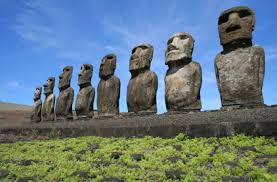National Digital Newspaper Program
The National Digital Newspaper Program (NDNP) is a partnership between NEH and the Library of Congress to create a national digital resource of historically significant newspapers published between 1690 and 1963, from all the states and U. S. territories.
This searchable database will be permanently maintained at the Library of Congress (LC) and will be freely accessible via the Internet.
(See the website, Chronicling America:
Historic American Newspapers.) An accompanying national newspaper directory of bibliographic and holdings information on the website directs users to newspaper titles available in all types of formats.
During the course of its partnership with NEH, LC will also digitize and contribute to the NDNP database a significant number of newspaper pages drawn from its own collections.
Forty-three states and one territory have joined the NDNP so far.
Previous award recipients include Alaska, Arizona, California, Colorado, Connecticut, Delaware, Florida, Hawaii, Idaho, Illinois, Indiana, Iowa, Kansas, Kentucky, Louisiana, Maine, Maryland, Michigan, Minnesota, Mississippi, Missouri, Montana, Nebraska, Nevada, New Jersey, New Mexico, New York, North Carolina, North Dakota, Ohio, Oklahoma, Oregon, Pennsylvania, Puerto Rico, South Carolina, South Dakota, Tennessee, Texas, Utah, Vermont, Virginia, Washington, West Virginia, and Wisconsin.
NEH intends to support projects in all states and U. S. territories.
Awards are made to an organization within each U. S. state or territory, which typically collaborates with relevant state partners in this effort.
After their initial NDNP awards, state partners are encouraged to seek second and third awards, to produce a total of approximately 300,000 pages of digitized newspapers per state.
Awardees may receive support for continued work beyond the third award, but the program gives priority to applications from those states and territories that have not received NDNP funding—as well as applications from states and territories that have received fewer than three awards.
Applications that involve collaboration between previously funded and new projects are also welcome.
This searchable database will be permanently maintained at the Library of Congress (LC) and will be freely accessible via the Internet.
(See the website, Chronicling America:
Historic American Newspapers.) An accompanying national newspaper directory of bibliographic and holdings information on the website directs users to newspaper titles available in all types of formats.
During the course of its partnership with NEH, LC will also digitize and contribute to the NDNP database a significant number of newspaper pages drawn from its own collections.
Forty-three states and one territory have joined the NDNP so far.
Previous award recipients include Alaska, Arizona, California, Colorado, Connecticut, Delaware, Florida, Hawaii, Idaho, Illinois, Indiana, Iowa, Kansas, Kentucky, Louisiana, Maine, Maryland, Michigan, Minnesota, Mississippi, Missouri, Montana, Nebraska, Nevada, New Jersey, New Mexico, New York, North Carolina, North Dakota, Ohio, Oklahoma, Oregon, Pennsylvania, Puerto Rico, South Carolina, South Dakota, Tennessee, Texas, Utah, Vermont, Virginia, Washington, West Virginia, and Wisconsin.
NEH intends to support projects in all states and U. S. territories.
Awards are made to an organization within each U. S. state or territory, which typically collaborates with relevant state partners in this effort.
After their initial NDNP awards, state partners are encouraged to seek second and third awards, to produce a total of approximately 300,000 pages of digitized newspapers per state.
Awardees may receive support for continued work beyond the third award, but the program gives priority to applications from those states and territories that have not received NDNP funding—as well as applications from states and territories that have received fewer than three awards.
Applications that involve collaboration between previously funded and new projects are also welcome.
Related Programs
Promotion of the Humanities_Division of Preservation and Access
National Endowment For The Humanities